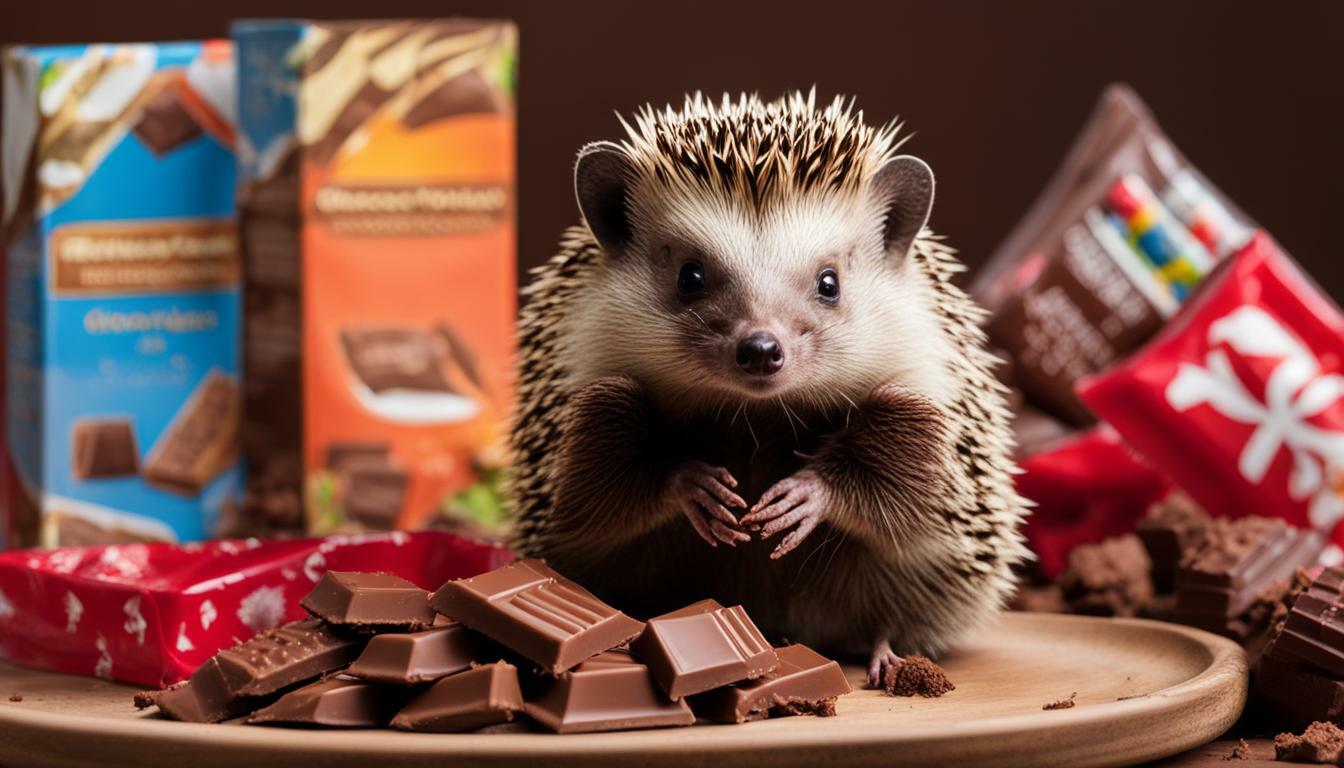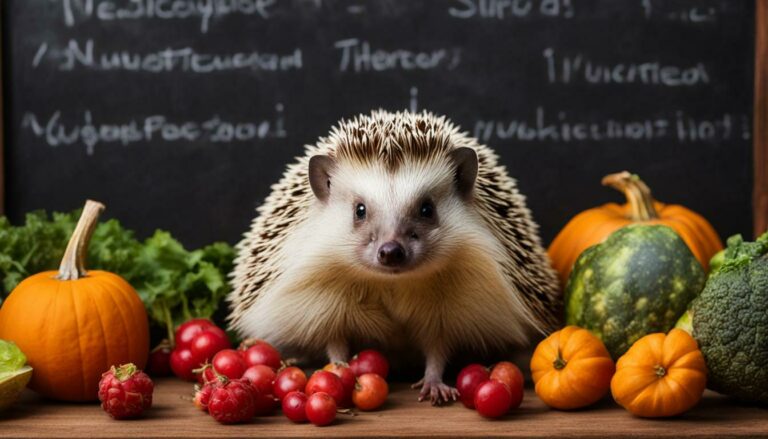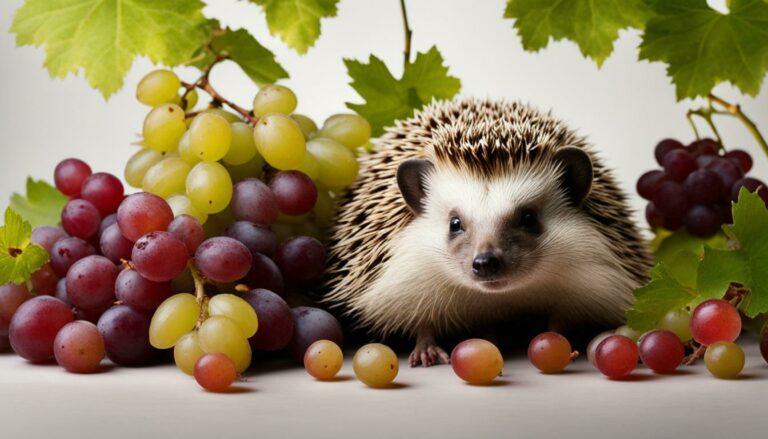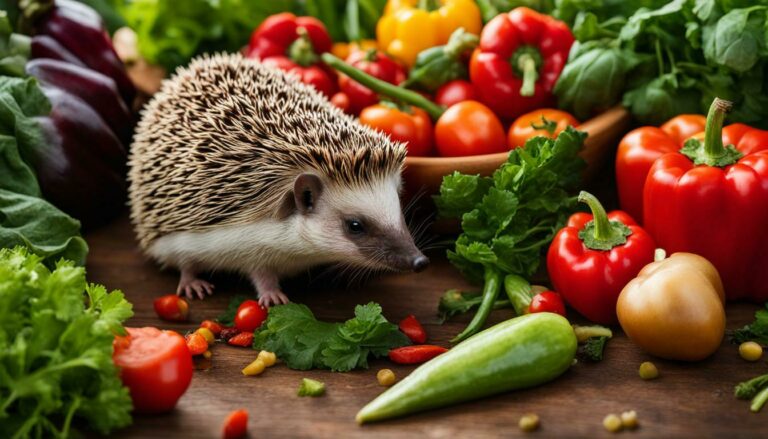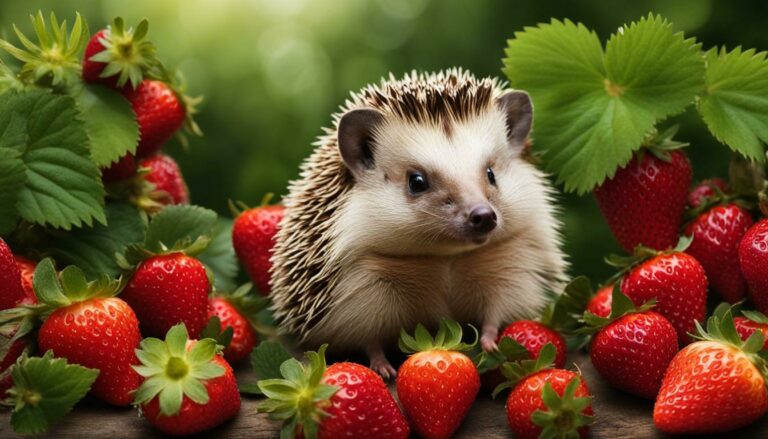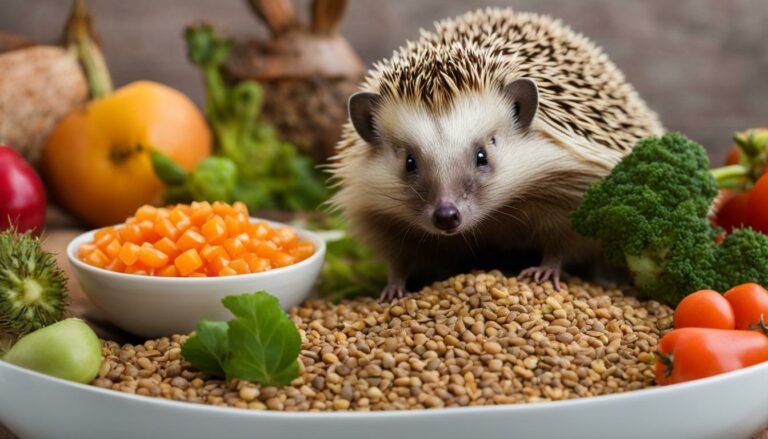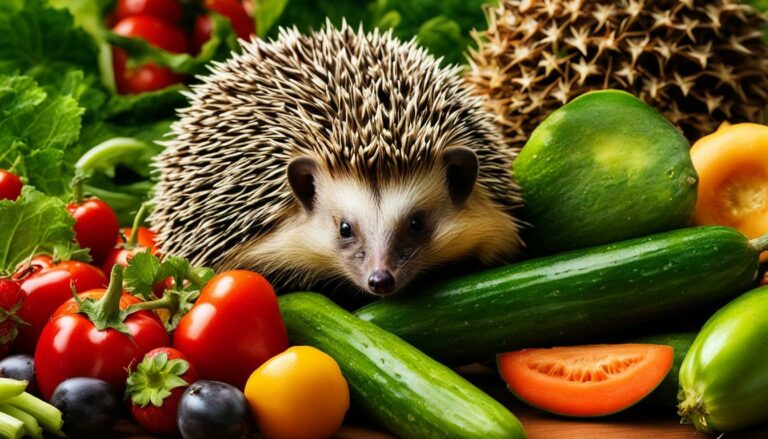Can Hedgehogs Eat Chocolate: Health Effects & Alternatives
Like many animals out there, hedgehogs should not eat chocolate, as it is toxic and can cause serious illness. If they eat enough of it, death is possible, though it would have to be a large amount of chocolate. But their small size means that even an ounce is too much.
Instead, you should focus on giving your hedgehog foods that are high in protein. High-quality hedgehog foods are the best options because they are specifically formulated for these small animals. You should also feed them a small number of gut-loaded insects, which should provide them with extra nutrition.
Chocolate is toxic to hedgehogs in general, but it also has way too much sugar. Even white chocolate should be avoided. While it won’t be nearly as toxic as regular chocolate, the amount of sugar is substantial for these small animals.
For a complete understanding of why all kinds of chocolate are so bad for these animals, keep reading.
Key Takeaways:
- Hedgehogs should not eat chocolate as it is toxic and can cause serious illness.
- High-quality hedgehog foods and gut-loaded insects are better options for their diet.
- Chocolate has too much sugar, even white chocolate should be avoided.
The Importance of a Proper Hedgehog Diet
Instead, you should focus on giving your hedgehog foods that are high in protein. High-quality hedgehog foods are the best options because they are specifically formulated for these small animals. You should also feed them a small number of gut-loaded insects, which should provide them with extra nutrition.
Chocolate is toxic to hedgehogs in general, but it also has way too much sugar. Even white chocolate should be avoided. While it won’t be nearly as toxic as regular chocolate, the amount of sugar is substantial for these small animals.
For a complete understanding of why all kinds of chocolate are so bad for these animals, keep reading.
What Do Hedgehogs Eat?
Pet hedgehogs should primarily eat commercial food designed specifically for hedgehogs. It contains everything that your pet needs to thrive, which can’t be said about chocolate.
Before the invention of hedgehog food, most owners fed their hedgehogs dry cat food. This can still work today. Since they are both obligate carnivores, hedgehogs and cats have similar diets.
That said, most carnivores can and do eat plants. You can provide your hedgehog with small amounts of fresh veggies and fruits. Care should be taken to select the correct varieties, though. They are not all the same, nutritionally speaking. Avoid veggies and fruits that are mostly water, like lettuce. You don’t want your hedgehog to fill up on water when they could be eating nutritionally-complete foods.
On top of this, you can provide a small number of insects. Be sure to feed the insects nutritional foods before feeding them to your hedgehog, as this ensures that your hedgehog is also eating nutritional foods.
Worms and crickets are great treats for hedgehogs, but they don’t provide a varied or complete diet. That’s what commercial hedgehog food is for.
| Food | Recommended Amount |
|---|---|
| High-quality hedgehog food | Main source of nutrition |
| Fresh veggies and fruits | Small amounts, avoid water-rich varieties |
| Gut-loaded insects | Small number for extra nutrition |
The Dangers of Feeding Hedgehogs Chocolate
Chocolate is toxic to hedgehogs in general, but it also has way too much sugar. Even white chocolate should be avoided, as the amount of sugar can be substantial for these small animals. The toxic nature of chocolate for hedgehogs can cause serious illness, and even a small amount can be harmful due to their small size.
One of the main reasons chocolate is toxic to hedgehogs is the presence of theobromine, a bitter alkaloid found in chocolate. Hedgehogs cannot metabolize theobromine properly and can be severely affected if they consume it. Theobromine can stay in their bloodstream for up to 20 hours, leading to seizures, irregular heart rate, and even internal bleeding.
In addition to theobromine, chocolate also contains a high amount of sugar. Hedgehogs require food that is high in protein and low in fat, and chocolate does not meet these nutritional requirements. Consuming too much sugar and fat can lead to health issues, including obesity and diabetes, in hedgehogs.
If a hedgehog accidentally consumes chocolate, it is important to seek veterinary care as soon as possible. Time is crucial in managing the effects of chocolate toxicity, and treatment can help prevent complications and other health issues. Dark chocolate is particularly dangerous, as it contains the highest amount of cocoa, the main ingredient that causes problems. Milk and white chocolate, although less dangerous, should still be avoided due to their high sugar content.
What Should I Do If My Hedgehog Eats Chocolate?
If your hedgehog has consumed chocolate, it is crucial to take them to a veterinarian as soon as possible. Treatment is possible in many cases if caught early. The veterinarian may induce vomiting to remove the chocolate from their system or provide other necessary treatment.
Keep a close eye on your hedgehog’s breathing and stool after they have eaten chocolate. Respiratory issues can arise due to cocoa consumption, and diarrhea can be a serious problem for hedgehogs. If you notice any abnormal symptoms or behaviors, it is important to seek veterinary care immediately.
As a responsible hedgehog owner, it is best to avoid feeding chocolate to your pet altogether. There are plenty of other safe and nutritious food options available that meet their dietary needs. It is always important to provide a proper hedgehog diet to ensure their health and well-being.
| Key Points: |
|---|
| – Chocolate is toxic to hedgehogs and should be avoided. |
| – Theobromine in chocolate can cause seizures, irregular heart rate, and internal bleeding in hedgehogs. |
| – Chocolate contains high amounts of sugar, which is not suitable for hedgehogs. |
| – Seek veterinary care if your hedgehog consumes chocolate. |
Understanding Hedgehog Diet Requirements
Pet hedgehogs should primarily eat commercial food designed specifically for hedgehogs. These foods are formulated to provide the essential nutrients that hedgehogs need to thrive. They are typically high in protein, which is crucial for hedgehog health. Commercial hedgehog foods also contain the right balance of fats, carbohydrates, vitamins, and minerals to meet their nutritional requirements.
In addition to commercial hedgehog food, it is important to offer small amounts of fresh vegetables and fruits as part of their diet. However, not all vegetables and fruits are suitable for hedgehogs. It is best to avoid watery vegetables like lettuce and focus on providing nutrient-rich options such as carrots, bell peppers, and blueberries. These can be offered as occasional treats to add variety to their diet.
Feeding hedgehogs gut-loaded insects is another important component of their diet. Insects like crickets and mealworms should be fed a nutritious diet before being offered to hedgehogs. This ensures that the insects provide the necessary protein and nutrients for the hedgehog’s overall health.
| Commercial Hedgehog Food | Vegetables and Fruits | Gut-loaded Insects |
|---|---|---|
| Specifically formulated for hedgehog nutritional needs | Small amounts of nutrient-rich options | Offered as treats after being fed a nutritious diet |
| High in protein, fats, carbohydrates, vitamins, and minerals | Avoid watery vegetables like lettuce | Insects like crickets and mealworms |
It is important to remember that hedgehogs have specific dietary requirements and should not be fed certain foods. Raw meat, eggs, nuts, seeds, and other hard foods should be avoided, as they can cause choking or digestive issues. Hedgehogs also cannot digest milk and should not be given any dairy products.
By providing a balanced diet that includes commercial hedgehog food, fresh vegetables and fruits, and gut-loaded insects, you can ensure that your hedgehog is receiving the necessary nutrients for optimal health and well-being.
Alternatives to Chocolate for Hedgehogs
Before the invention of hedgehog food, most owners fed their hedgehogs dry cat food. This can still work today, as hedgehogs and cats have similar diets since they are both obligate carnivores. However, it is important to ensure that the cat food is high in protein and low in fat. High-quality hedgehog foods are also available and are the best option as they are specifically formulated for these small animals. These foods provide the necessary nutritional requirements for hedgehogs to thrive.
In addition to commercial hedgehog food, you can also provide your hedgehog with small amounts of fresh vegetables and fruits. However, it is important to select the correct varieties as not all vegetables and fruits are nutritionally suitable for hedgehogs. It is best to avoid vegetables and fruits that are mostly water, like lettuce, as hedgehogs need foods that are nutritionally complete. Feeding your hedgehog a small number of gut-loaded insects will also provide them with extra nutrition.
When it comes to insects, worms and crickets are great treats for hedgehogs, but they should not be the sole source of their diet. Instead, they should be considered as supplements to their main food. Commercial hedgehog food provides a varied and complete diet, ensuring that your hedgehog receives all the necessary nutrients. It is important to note that while treats can be given to hedgehogs in small amounts, they should not make up a regular part of their diet.
| Safe Foods for Hedgehogs |
|---|
| Commercial hedgehog food |
| High-quality cat food (high protein, low fat) |
| Small amounts of fresh vegetables and fruits (select appropriate varieties) |
| Gut-loaded insects (worms, crickets) |
Summary:
- Commercial hedgehog food and high-quality cat food are suitable options for hedgehogs.
- Small amounts of fresh vegetables and fruits can be provided, taking into consideration their nutritional value.
- Gut-loaded insects, such as worms and crickets, can be given as treats but should not be the main source of their diet.
- It is important to avoid feeding hedgehogs chocolate as it is toxic and does not provide the necessary nutrition they need.
Potential Health Effects of Chocolate on Hedgehogs
If your little pet eats chocolate, you should take them to the vet as soon as possible. Chocolate is toxic to hedgehogs and can cause serious health issues. Even a small amount of chocolate can have detrimental effects on your hedgehog’s health.
Theobromine, a compound found in chocolate, is especially harmful to hedgehogs. Their small size and inability to metabolize theobromine efficiently make them more susceptible to its toxic effects. Consumption of chocolate can lead to seizures, irregular heart rate, tremors, and internal bleeding in hedgehogs. These symptoms can worsen over time and may even be fatal if left untreated.
In addition to theobromine, chocolate is high in sugar and fat, which are not suitable for hedgehogs. Excessive sugar and fat intake can lead to obesity, diabetes, and other health complications. It is essential to provide your hedgehog with a balanced and nutritionally appropriate diet to ensure their well-being.
If you suspect that your hedgehog has consumed chocolate, it is crucial to seek immediate veterinary care. The veterinarian will be able to assess the situation and provide the necessary treatment. Time is of the essence, as the effects of chocolate toxicity can take a while to manifest. Early intervention can prevent complications and increase the chances of a successful recovery.
Signs of Chocolate Toxicity in Hedgehogs
While it is essential to take your hedgehog to the vet if they have ingested chocolate, it is also important to be aware of the signs and symptoms of chocolate toxicity. These may include:
- Seizures
- Irregular heart rate
- Tremors or shaking
- Breathing difficulties
- Vomiting
- Diarrhea
- Weakness or lethargy
If you notice any of these symptoms in your hedgehog, it is crucial to seek veterinary care immediately. The vet will be able to provide the appropriate treatment and support to help your hedgehog recover.
| Signs of Chocolate Toxicity in Hedgehogs | Actions to Take |
|---|---|
| Seizures, irregular heart rate, tremors, breathing difficulties | Seek immediate veterinary care |
| Vomiting, diarrhea, weakness, lethargy | Monitor your hedgehog closely and seek veterinary care if symptoms worsen or persist |
To prevent chocolate toxicity in hedgehogs, it is crucial to keep chocolate and other potentially harmful foods out of their reach. Stick to a proper hedgehog diet that includes high-quality hedgehog foods, gut-loaded insects, and small amounts of fresh vegetables and fruits. By providing a balanced and nutritious diet, you can ensure your hedgehog’s health and well-being.
Conclusion
You should avoid feeding your hedgehog any amount of chocolate. Cocoa is toxic to hedgehogs, causing respiratory problems in high amounts. The caffeine in chocolate is also a problem because it can cause all sorts of health problems. Also, many types of chocolate are high in sugar, which is not what your hedgehog needs.
If your hedgehog has eaten chocolate, a vet visit may be in order. We recommend at least calling your vet to see how concerned you should be based on the amount and type of chocolate that your hedgehog has eaten.
You should watch for breathing problems after your hedgehog eats chocolate, as this symptom can be concerning.
FAQ
Q: Can hedgehogs eat chocolate?
A: No, hedgehogs should not eat chocolate as it is toxic to them and can cause serious illness. Even a small amount of chocolate can be harmful to their small bodies.
Q: What should hedgehogs eat instead of chocolate?
A: Hedgehogs should primarily eat commercial food specifically designed for hedgehogs, which contains all the necessary nutrients for their health. In addition, small amounts of fresh veggies, fruits, and gut-loaded insects can be provided as treats. It is important to avoid foods that are mostly water, like lettuce, and to select nutritionally complete options for their diet.
Q: What are the potential health effects of feeding hedgehogs chocolate?
A: Chocolate can cause respiratory issues, digestive problems, and even death in hedgehogs. The caffeine and sugar content in chocolate are particularly harmful to them. If a hedgehog consumes chocolate, it is essential to seek veterinary care as soon as possible.
Q: Why is it important to provide a proper diet for hedgehogs?
A: A proper diet is crucial for hedgehogs to thrive and maintain their health. The right balance of protein, fat, and nutrients is necessary for their overall well-being. Feeding them a diet specifically formulated for their nutritional needs ensures they receive all the necessary nutrients.
Q: What are some alternative foods for hedgehogs?
A: High-quality hedgehog foods, gut-loaded insects, and small amounts of fresh veggies and fruits are excellent alternatives to chocolate for hedgehogs. These foods provide the necessary nutrients and variety for their diet.
